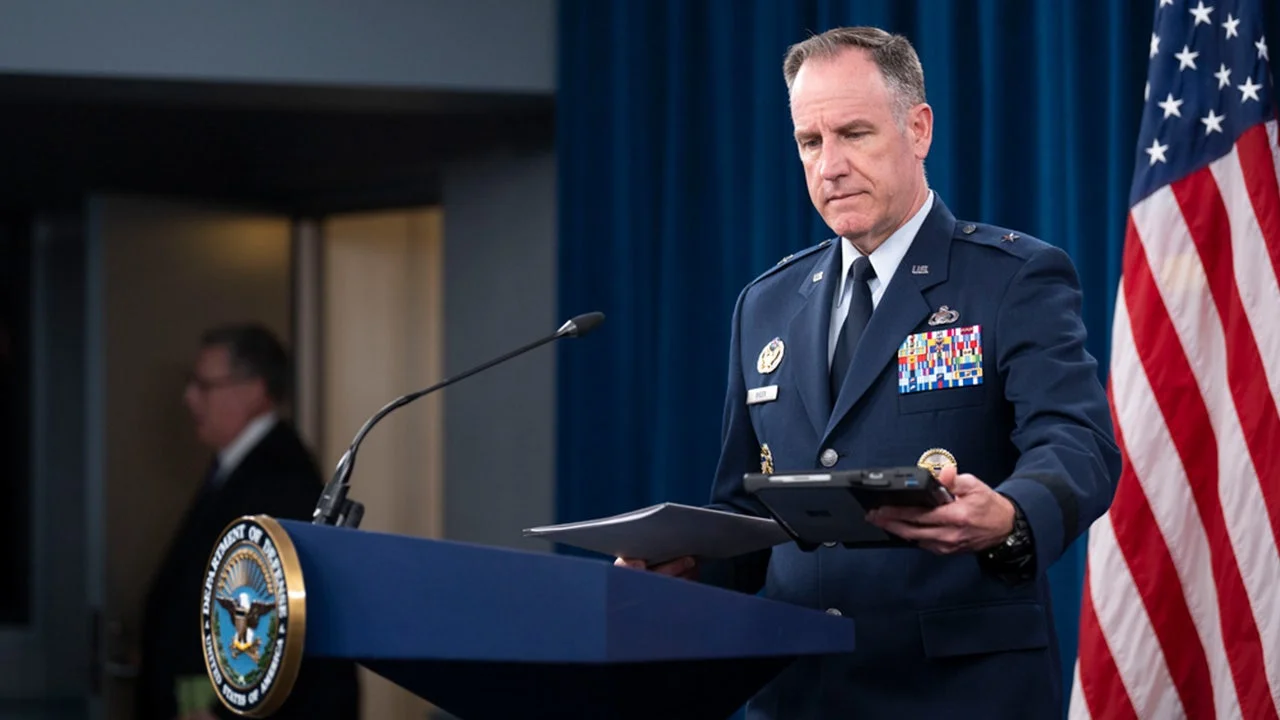In a significant turn of events following the fatal plane crash involving Yevgeny Prigozhin, the head of the Russian private military group Wagner, the United States has officially rejected the notion that a missile strike was responsible for the tragedy. This statement comes just a day after the devastating crash that resulted in the loss of at least ten lives.
Brigadier General Patrick Ryder, spokesperson for the United States Department of Defense, unequivocally stated that the information available to their agency does not align with the theory that a missile struck the Embraer jet, which went down in the Tver region north of Moscow. The US Department of Defense does not have any indication supporting the claim of a missile hitting the plane.
While the exact cause of the crash remains unknown, Brigadier Ryder acknowledged that the US holds the belief that Yevgeny Prigozhin, the Wagner chief, was likely among the casualties of the incident. However, he refrained from speculating further on the circumstances leading to the crash.
This aviation disaster occurred merely two months after Yevgeny Prigozhin led an unsuccessful mutiny against the top leadership of Moscow, challenging the authority of Russian President Vladimir Putin. Prigozhin’s demise was confirmed a day after the crash.
President Putin addressed the nation in response to the tragic incident, conveying his condolences to the families affected and acknowledging Prigozhin’s complex legacy. Putin referred to Prigozhin as an individual with a “complicated fate,” recognizing both his achievements and significant mistakes throughout his life.
The crash has prompted widespread speculation, with several international leaders, including US President Joe Biden, expressing reservations about the crash’s accidental nature. Biden alluded to the possibility of President Putin’s involvement in events within Russia.
Leaders from France and Germany have also voiced concerns about the circumstances surrounding the crash. France expressed “reasonable doubts,” while Germany highlighted the pattern of “unclarified” fatalities in Russia. German Foreign Minister Annalena Baerbock questioned the timing of the crash, which occurred merely two months after Prigozhin’s failed mutiny attempt against Putin.
As investigations continue, Russia’s aviation authority released the list of individuals on board the crashed Embraer private jet. The passenger list includes Yevgeny Prigozhin and Dmitry Utkin, Prigozhin’s right-hand man, who reportedly managed Wagner’s operations and allegedly had ties to Russian military intelligence.
The ongoing investigations into the crash and its possible implications remain subjects of intense global interest and speculation, as questions linger about the motives and potential broader ramifications within both Russian and international contexts.




